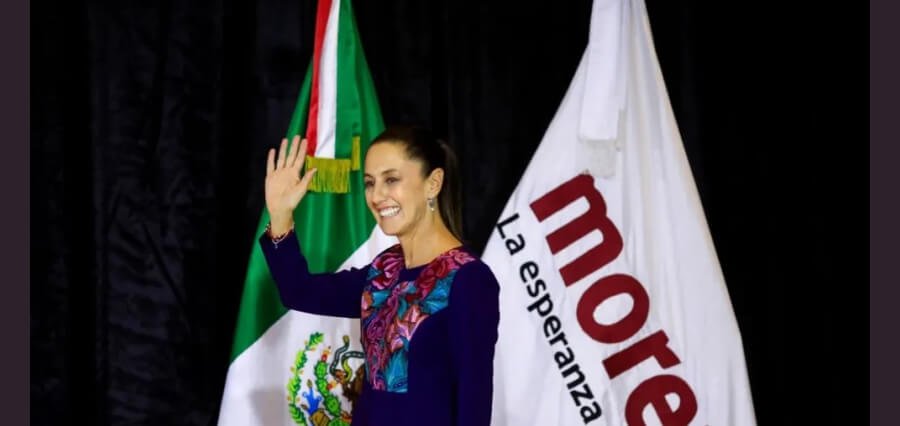The victory of Claudia Sheinbaum is historic, but feminists don’t think much will change because race is still governed by “issues that matter to men.”
Being the first woman elected president of Mexico, Claudia Sheinbaum has created history, but activists worry that her victory may be primarily symbolic given her lack of policy commitments during her campaign, particularly with the high rates of domestic violence and unequal access to abortion.
“In the women’s rights agenda, being a woman does not always equate to progressiveness,” stated Friné Salguero, director of the Simone de Beauvoir Leadership Institute, a feminist civil society organization with headquarters in Mexico City.
The victory of Sheinbaum, a climate scientist and former mayor of Mexico City, against Xóchitl Gálvez, another female candidate, for the ruling Morena party highlights the high percentage of female engagement in Mexican politics. According to a list compiled by the Inter-Parliamentary Union (IPU), an independent organization that promotes democracy, women occupy half of the seats in the nation’s Congress. Rwanda, Cuba, and Nicaragua are the only three nations in the world with greater shares. However, in Mexico, a nation of 126 million people where patriarchal beliefs are still deeply ingrained, particularly in rural regions, researchers find little evidence that women in leadership roles contribute more to the advancement of women’s rights than do men.
According to political scientist Flavia Freidenberg’s research, of the over 24,000 bills that were filed in municipal congresses across the nation between 2014 and 2019, just 4,000 had provisions aimed at enhancing the lives of women. “A progressive or substantive equality agenda will not be defended even if you put women in congresses or the presidency,” according to Freidenberg, a scholar at the National Autonomous University of Mexico.
Nonetheless, experts on women’s rights stated that the results of Sunday’s election demonstrate the achievements of the feminist movement since Mexican women were first granted the right to vote in 1955.
However, they claimed that neither Sheinbaum nor Gálvez had included gender issues in their policy agendas, for instance, when discussing how they intended to handle the effects of climate change and violence associated to cartels. “Neither candidate expressed an opinion on the rights of trans women. Lesbian women, Indigenous women, and disabled women were not discussed by either, according to Ericka López Sánchez, a gender and democracy professor at Guanajuato University.
She stated, “Their agendas focused on the issues that matter to men,” adding that they had sidestepped the delicate subject of access to abortion.
For More Details: https://womentimesmagazine.com/






